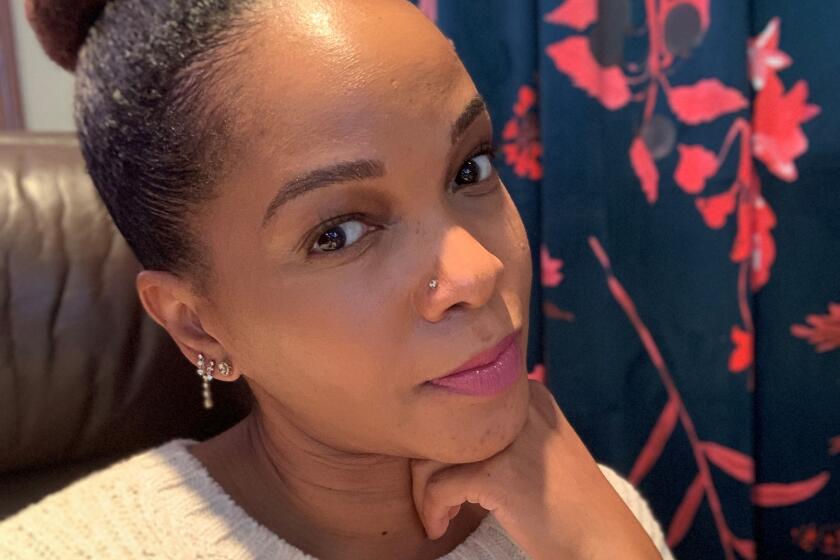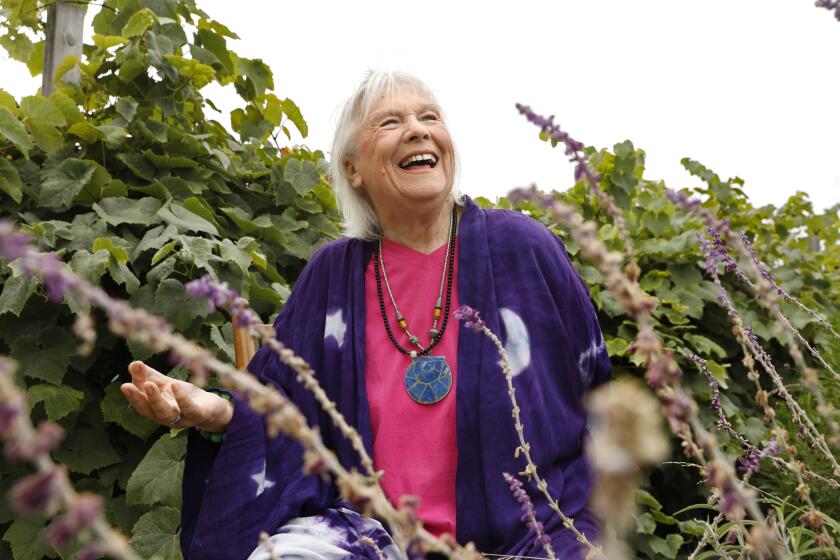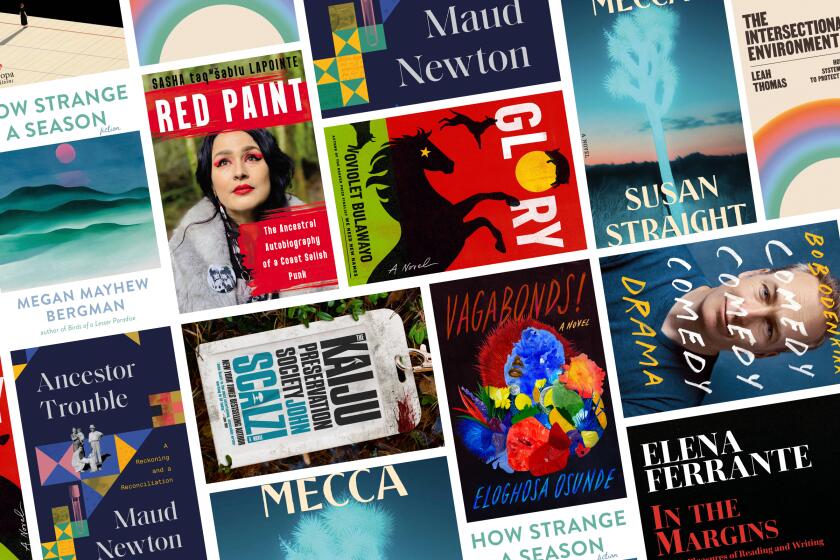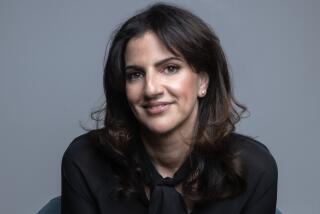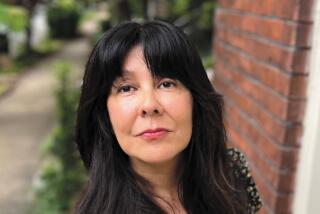Review: How one writer learned to live with her deplorable ancestors
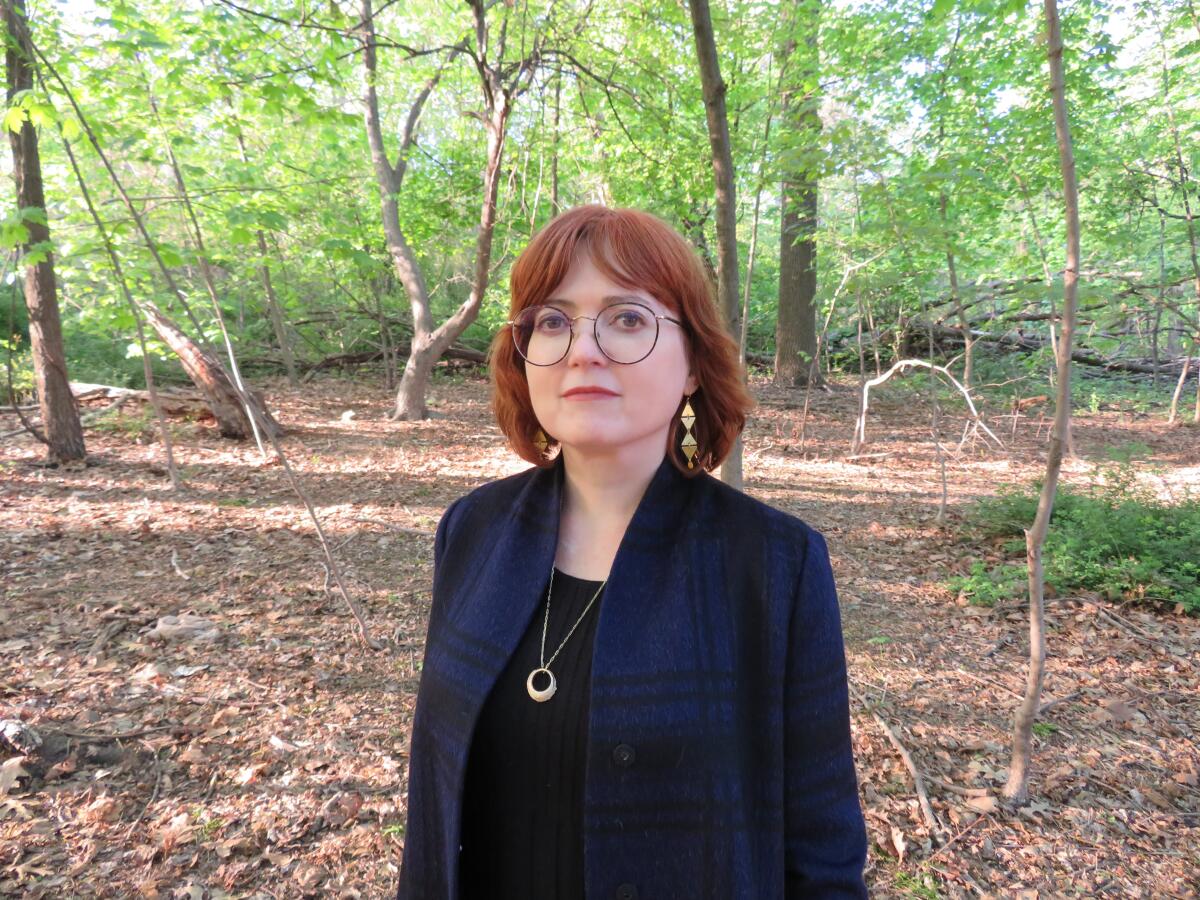
- Share via
On the Shelf
Ancestor Trouble: A Reckoning and a Reconciliation
By Maud Newton
Random House: 400 pages, $29
If you buy books linked on our site, The Times may earn a commission from Bookshop.org, whose fees support independent bookstores.
What do we owe our ancestors, and what claim do they have on us? How do we shoulder the legacy of their shortcomings, sins and crimes? These questions cloud our country’s history and dog the conscience of anyone who has wandered into the weeds of Ancestry.com and stumbled on a handwritten will revealing that their forebears owned slaves (and parceled them out to their children when they died). Genealogy sites like Ancestry, which meld DNA testing and a massive computer base of records and research, have opened the door to stories of quiet heroism, closeted villainy and unimaginable pain.
For her mostly revelatory new memoir, “Ancestor Trouble,” blogger, critic and essayist Maud Newton has spent the last several years reckoning with the personal and historical legacy of her ancestors, starting with her fractured immediate family and working backward in time, through and beyond her great-grandparents.
In Newton’s birth family, some breaks have never healed. She’s permanently estranged (and disinherited) from her father, a Mississippi-raised attorney who considered slavery “a benevolent institution that should never have been disbanded,” who painted out the faces of the brown children in her storybooks (with her mom’s nail polish, if you’re wondering). For seven years, she didn’t talk to her mother, an evangelical Christian minister, because her mom refused to acknowledge the harm done by the fact that at age 12, Maud was molested by her stepfather. “I loved my mother with a ferocious intensity and wanted her to be right,” she writes. The wrongness of her mother’s blindness was devastating.
The further back Newton goes, the more hair-raising it gets. Her paternal grandparents, wealthy plantation owners who relied on Black labor to work the fields, brokered cotton in the Mississippi town where Emmett Till was lynched. Her fourth-great-grandfather prospered from buying and selling slaves. Her maternal grandfather, a bipolar Texas Lothario who was married at least 10 times, was shot in the stomach by one of his wives, and her maternal great-grandfather killed a man with a hay hook. One New England ancestor grew wealthy from cheating Native Americans out of their land; another was thought to be a witch.
The writer and Princeton scholar on “South to America,” her personal and historical tour of the region, and why so many liberals are wrong about it.
This is rich material for a soul-searching memoir, but in “Ancestor Trouble,” Newton aims for more than an accounting of family secrets. She surveys and synthesizes what we know today about inheritance, a wealth of new knowledge derived from the sequencing of the human genome and the explosion of genetic research that followed. Her search for her personal legacy leads down multiple roads (and many blind alleys) as Newton pieces together the lives of long dead relatives from newspaper stories, city directories and patient registers at insane asylums. Her journey is by turns revelatory, funny and exquisitely sad, as she tries to understand the fraying of what were once the sturdy and loving bonds of family.
Newton’s method in each of eight sections (“Nature and Nurture,” “Physicality,” “Temperament,” etc.) is to start with a focus on the personal — a grandfather’s mental illness, a grandmother’s hyperthyroidism. She then goes wide and deep into history, theology, culture and science, returning to puzzle out what it means for her. There are chapters on the development of genetics, the eugenics movement, the heritability of family traits and the field of epigenetics, which studies whether our genes can be altered by experience (short answer: it’s complicated).
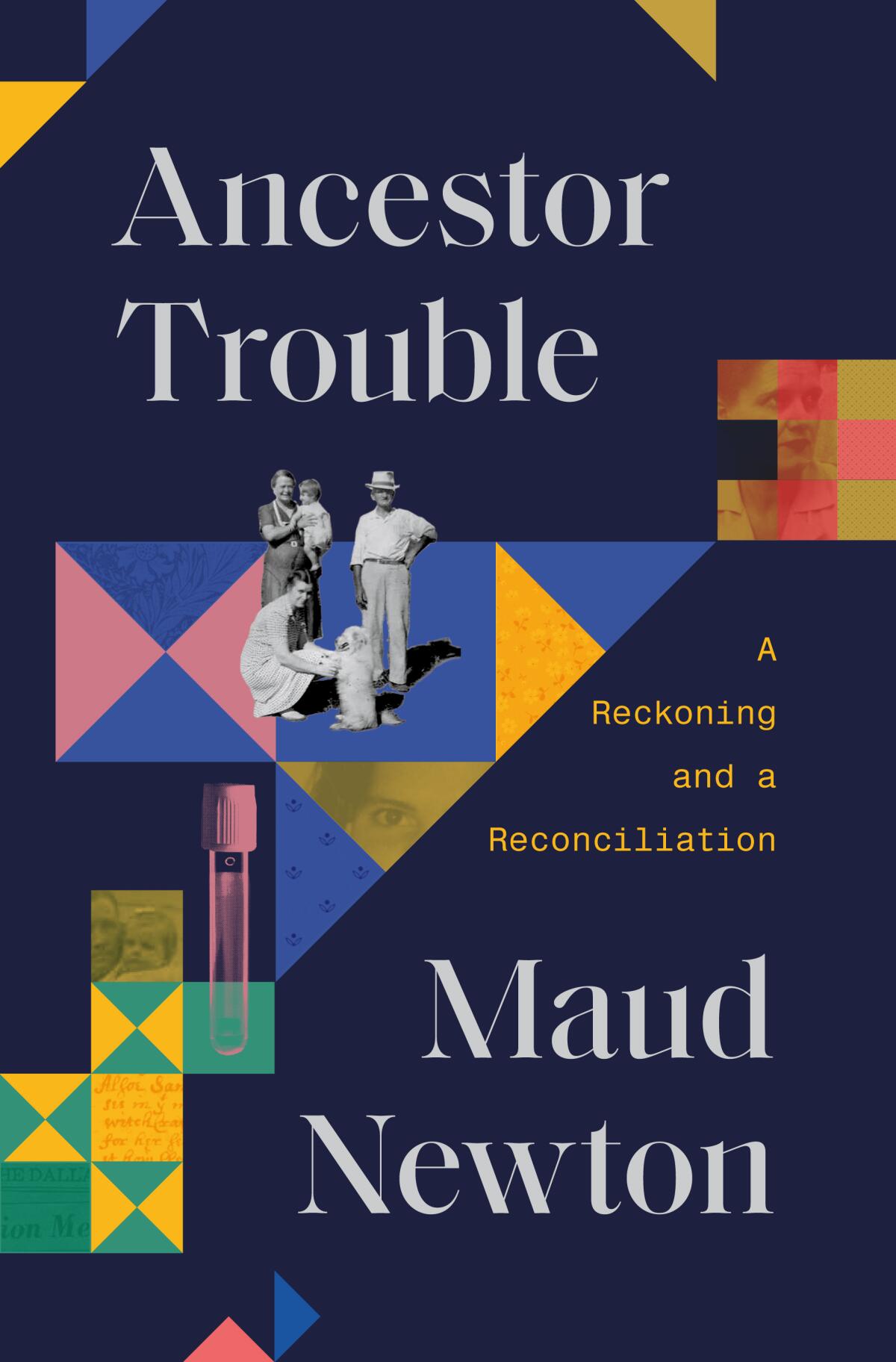
This combination of personal revelation and synthesis works, for the most part. Newton is a logical thinker and a hyperacute observer, with a prodigious memory and a lacerating honesty. She’s a transparent and at times lyrical writer: A grandmother’s ring, which she inherited and lost, was “the Platonic ideal of a ruby, the color of blood from a prick test.”
She balances blame with credit. “What I’ve longed for most in my life is to be like my mom: creative, original, joyfully intractable,” she writes. “What I’ve feared most, too, is being like her: impulsive, fervent, self-destructive, and rebellious, pouring myself into projects I later burn down.”
In an act of generosity, Newton lays her writing ability at the feet of her father and his family, “the way I return to subjects again and again, from different angles, explaining my thoughts and feelings to myself as I go and then building them into an argument to satisfy myself and anyone else who might, along the way, be persuaded.”
It is disquieting, then, when after many pages of lucid observations, she goes off the rails on the subject of ancestor worship — its ancient origins and modern incarnations. Newton signs on to the notion that her ancestors are out there, ready and willing to give advice. She takes an “ancestor-veneration course for beginners” (available in New Orleans; Brooklyn; Asheville, N.C.; and Portland, Ore.), which purports to help participants reach out to their forebears for support.
Zsuzsanna Budapest helped bring Goddess religion to the U.S. in the ’70s, and was arrested for reading tarot. Now she lives in a retirement community.
Course materials contend, “In addition to supporting repairs with living family, our ancestors encourage healthy self-esteem and help us to clarify our destiny, relationships, and work in the world.” (Here I was trying to imagine my paternal grandparents, who raised 10 children on a hardscrabble Tennessee farm, bolstering my self-esteem from beyond the veil.) This search for one’s “well” relatives and lineages, taking care to evade the dangerous “unwell” dead, leads in Newton’s case to an encounter with an ancestor-linked spirit that apparently wandered over from the Disney studio lot, “a sort of fairy insect….she had a fat blue-green body like a caterpillar, large blue wings, and a blue human face.”
It’s as if Newton’s analytical mind took a holiday in the struggle to make her contradictory feelings come together. This deviation in tone and intent, so late in the book, throws the reader. If family reconciliation is the goal, the results feel sadly incomplete.
But then, how is reconciliation possible without reciprocity? Newton and her living family can still apologize, atone, but failing woo-woo rituals, the other ancestors cannot. Nor can their descendants do so on their behalf.
Newton is on a journey, and perhaps her search for ancestor spirits is one stop on the road. She believes answering for her ancestors’ sins is essential — she supports organizations that help Native people reclaim land — but how to fully account for such massive injustice remains a fraught question. “I’m only beginning — and still pondering how — to make amends,” she writes.
On a cold December day, she visited the home of her ninth great-grandparents in Massachusetts, people who appropriated Native land and grew wealthy from it. “The place felt somber and misguided, a dubious monument that should be rethought,” she wrote. “I asked forgiveness of the land and its Native people, living and dead. On the worn dirt at the foot of a bench, I emptied a bottle of wine as an offering.”
Bethanne Patrick’s March picks include works by Bob Odenkirk and Elena Ferrante, as well as an Indigenous punk memoir and magical African allegories.
Gwinn, a Pulitzer Prize-winning journalist who lives in Seattle, writes about books and authors.
More to Read
Sign up for our Book Club newsletter
Get the latest news, events and more from the Los Angeles Times Book Club, and help us get L.A. reading and talking.
You may occasionally receive promotional content from the Los Angeles Times.
